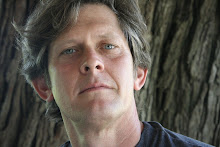
This week's newspaper column: (Read it in the Hattiesburg American.)
As oil from BP’s deep sea well continues to spill into the Gulf of Mexico, the debate on the future of energy has shifted. “Drill, baby, drill” just lost its mojo.
With just one accident, the downside risk of fossil-fuel dependence is coming into full view, and if ever there’s an example of how ‘all things are connected,’ this is it. As if a free-flow of crude oil and gas spewing into a natural aquatic habitat isn’t bad enough, the unintended consequences are just beginning to play out. Gulf fishermen are seeing their livelihoods vanish as sheens of oil invade the fertile estuaries of the Mississippi River Delta; the tourist industry in Louisiana, Mississippi, Alabama, and Florida is taking it on the chin as would-be visitors steer clear of Gulf beaches; and a quarter of America’s homegrown seafood source has been placed in jeopardy.
The smoke is beginning to clear inside the crystal ball and one thing is coming into focus: Our energy future is not with fossil fuels.
Rather, the future of energy production on this planet is up in the air – literally – with solar and wind. On the surface, it’s obvious. Why drill more dirty holes in the earth to extract finite resources when an infinite supply of clean energy is right above our heads? The transition will take some time, but not as long as some would lead you to believe; when the costs of real and potential accidents like the Deepwater Horizon spill are added into the equation, wind and solar may already be a better deal.
But for now, what do we do about the damage - economic and environmental – caused by the Gulf oil spill? How are we, as a society, going to mitigate the damage and insure that future accidents are prevented when possible, and quickly remediated when necessary?
I'd love to see a modern-day CCC program funded by a fossil-fuel tax. (History geek footnote: The Civilian Conservation Corps, better known as the CCC, was a successful jobs program in the US born out of the Great Depression to put millions of unemployed people back to work while simultaneously building and maintaining American park infrastructure and helping out with natural and man-made disasters.)
Before anyone blows a head gasket over the mere mention of the word “tax,” let’s just be clear. It is as American as apple pie to expect people and businesses to take responsibility for the consequences of their actions. Otherwise, taxpayers pick up the tab. Think of it as a tipping fee – fees landfills charge to accept waste - if you’ve been conditioned to hyperventilate when you hear the word “tax.”
By matching up environmental tipping fees with the inherent risks of fossil-fuel extraction, we can put millions of unemployed and underemployed Americans to work cleaning up the Gulf of Mexico and rebuilding our natural ecosystems.
Today, the headlines may be bleak, but our energy future is bright – and windy.












